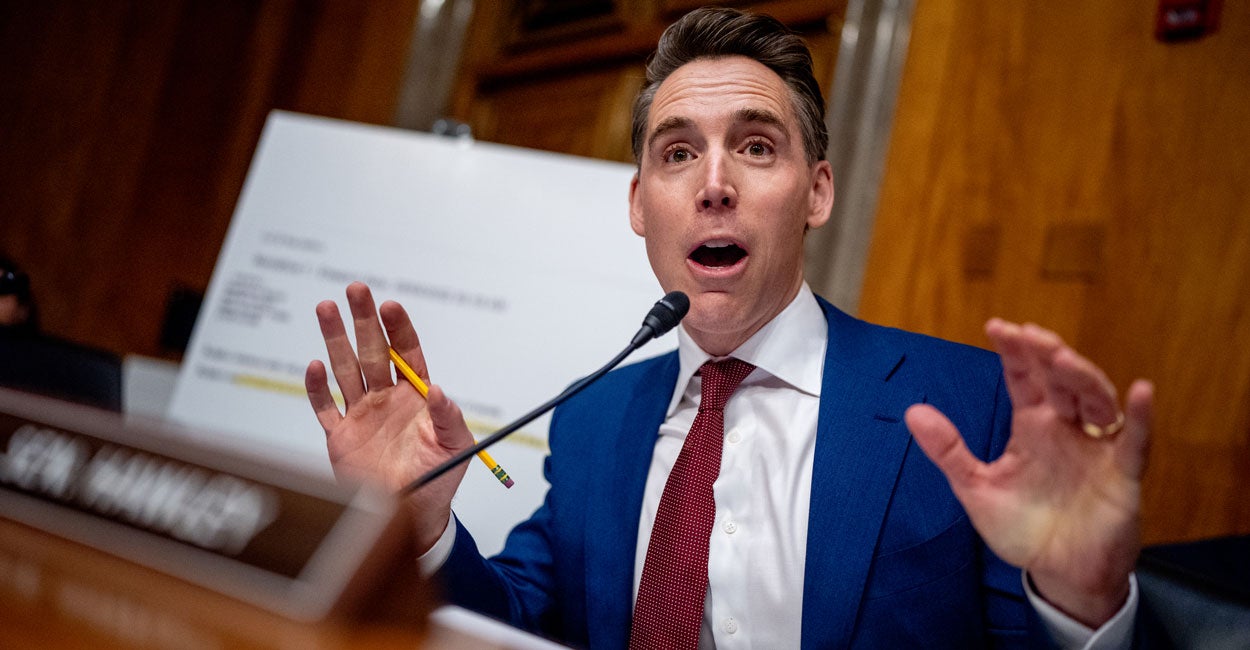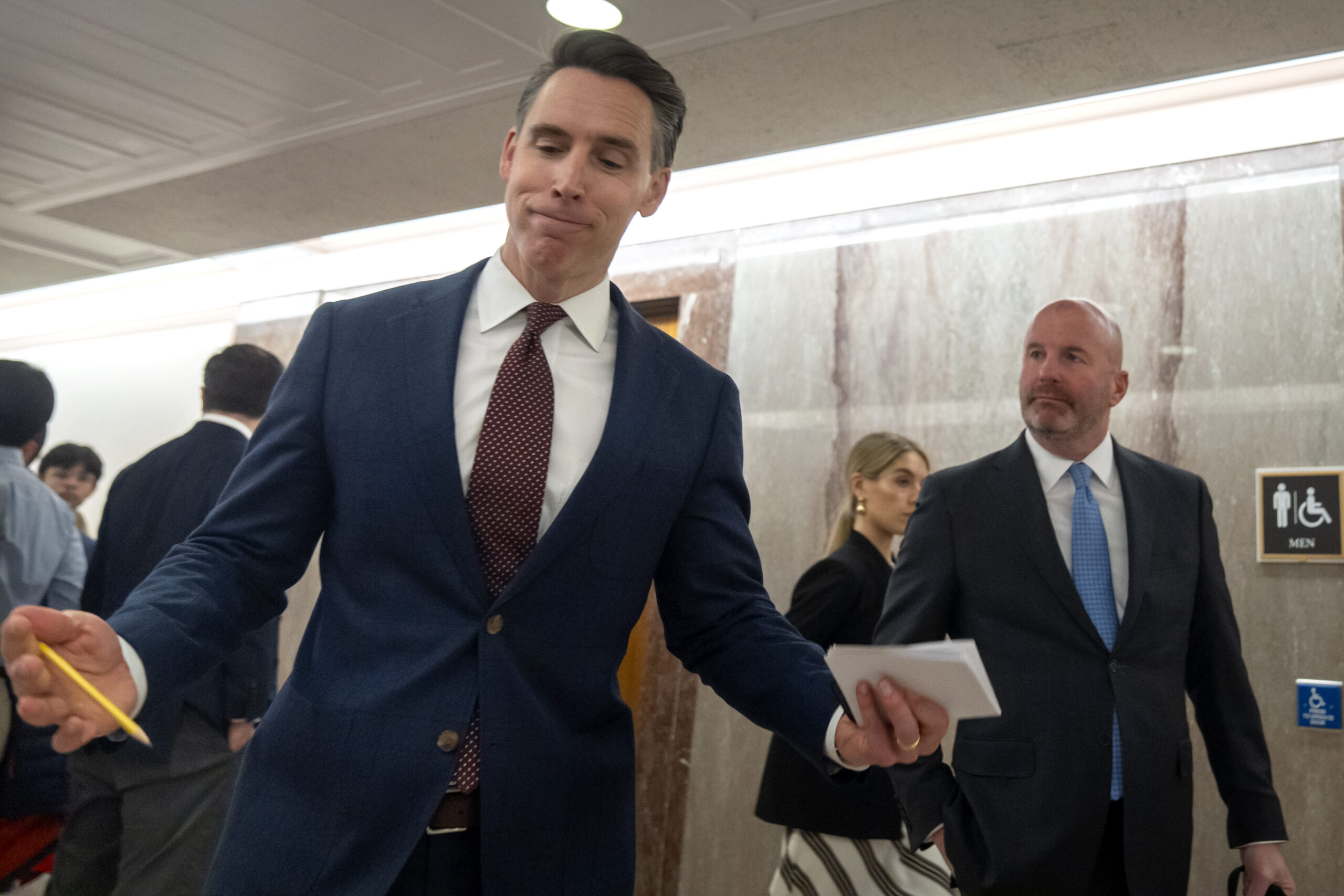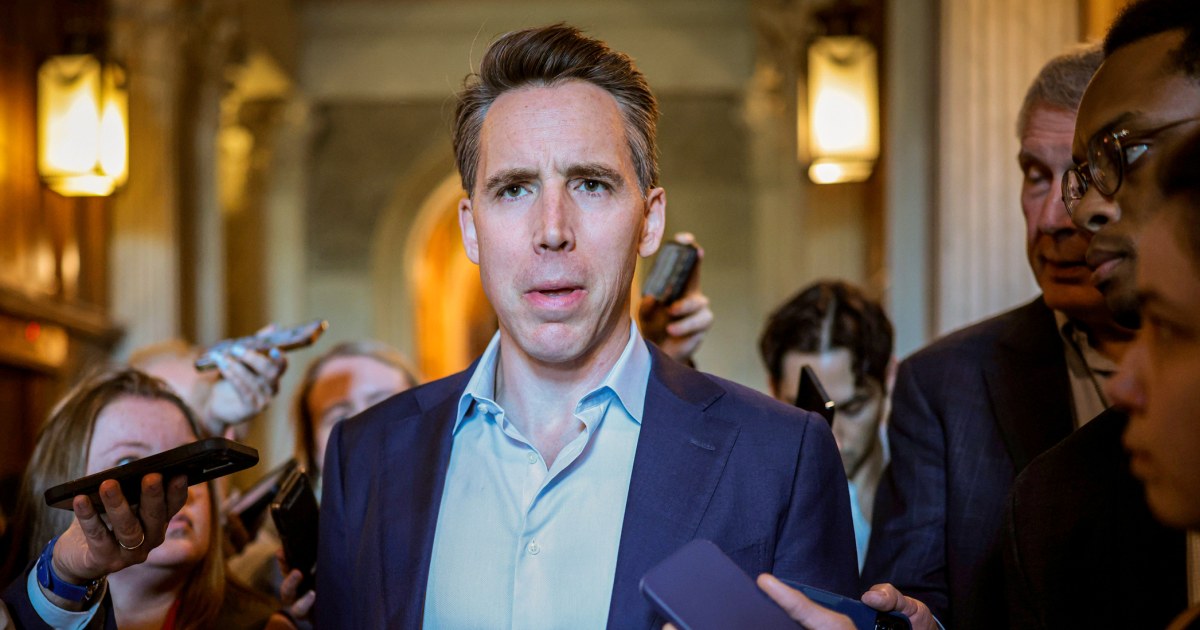Sen. Josh Hawley Proposes Bipartisan Legislation to Raise Federal Minimum Wage to $15
Sen. Josh Hawley introduces a bill to raise the federal minimum wage to $15 per hour, gaining bipartisan support amid stagnant wages since 2009.
Subscribe to unlock this story
We really don't like cutting you off, but you've reached your monthly limit. At just $5/month, subscriptions are how we keep this project going. Start your free 7-day trial today!
Get StartedHave an account? Sign in
Overview
- Sen. Josh Hawley has introduced a bill to raise the federal minimum wage from $7.25 to $15 per hour, seeking bipartisan support.
- The current federal minimum wage has not changed since 2009, prompting calls for an increase to match economic conditions.
- Hawley is collaborating with Sen. Peter Welch, a Democrat, to advocate for higher wages and tax credits for low-income workers.
- Despite being an outlier in the GOP, Hawley is pushing for wage legislation, emphasizing the need for economic reform.
- Most states have set minimum wages above the federal level, reflecting a growing movement for a $15 federal minimum wage.
Report issue

Read both sides in 5 minutes each day
Analysis
Advocate for raising the federal minimum wage, currently stagnant at $7.25 since 2009.
Articles (6)
Center (2)
FAQ
According to an analysis by the Employment Policies Institute, Senator Hawley's $15 minimum wage proposal could result in over 800,000 lost jobs across the U.S., including over 6,000 lost jobs in Missouri. The Congressional Budget Office also aligns with this estimate, suggesting a significant job loss impact.
Senator Hawley's bill, called the "Higher Wages for American Workers Act," aims to raise the federal minimum wage to $15 per hour starting in 2026 and then index further increases to inflation annually.
Senator Josh Hawley is working with Senator Peter Welch, a Democrat, to introduce the bipartisan legislation aimed at raising the federal minimum wage to $15 per hour and providing tax credits to low-income workers.
The federal minimum wage has remained unchanged at $7.25 per hour since 2009, leading to calls for an increase to better reflect current economic conditions.
Concerns include significant job losses as predicted by the Employment Policies Institute and the Congressional Budget Office, as well as increased federal deficits estimated at $54 billion. Additionally, a majority of economists surveyed oppose raising the minimum wage to $15 per hour due to potential negative economic impacts.
History
- This story does not have any previous versions.





